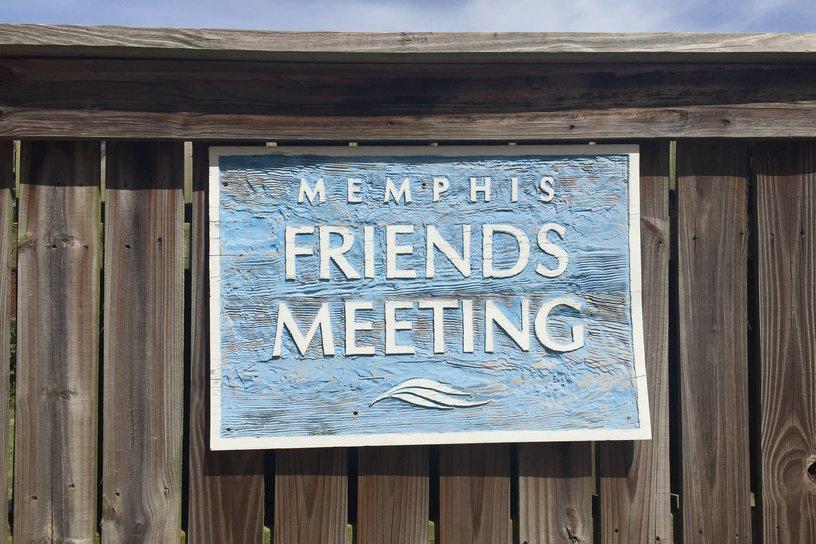Make new friends, but keep the old
Religious studies students experience Quaker service
Photo: Annie Vento
The Memphis Friends meeting house welcomes returning members and new visitors. This past Sunday, Mr. Kyle Slatery and nine students attended a Quaker service as part of their participation credit for the religious studies class.
What do you think of when you hear Quaker? Your mind may jump to the Amish community and you may assume it is a rather conservative and traditionalist form of Christianity, or you may know about their universalist methods and assume it’s a hippie religion. Regardless of your prior knowledge of the Quaker religion, nothing can prepare you for experiencing an actual service.
In order to receive participation credit in the upper school religious studies class this year, which is taught by Mr. Kyle Slatery and Mr. Nick Whicker, students must visit one religious institution each trimester, and there are a number of different opportunities ranging from attending a Mormon church service to visiting a Buddhist temple.
This past Sunday, Sept. 20, nine students and Mr. Slatery attended a Quaker worship service, known as a Memphis Friends meeting. The service itself was held in a meeting house, which appears to be a normal household residence on the outside. However, it is characterized as a meeting place by the traditional church pews within the living room and Quaker libraries for friends and newcomers.
When we first walked into the meeting house, we navigated towards the kitchen where we read through pamphlets about how to become a Quaker and the latest issue of the Memphis Friends newsletter. As we began to take our seats and other friends began to enter, everyone began to slowly quiet down and our silent meditation began.
It wasn’t until a few minutes into the silent meditation that I realized it had already begun and that, whether I was intending on it or not, I was participating in a Quaker practice.
We remained silent for about thirty minutes until a woman who felt compelled to speak rose. She spoke for about four to five minutes about the god, Odin, who was on her mind during the meditation. She talked at length about how during their time, the Scandinavians would sit alone with their thoughts under a heavy blanket, and they would stay under that blanket for however long it would take them to solve a problem they were facing, sometimes upwards of two or three days.
She related this to what we were doing since a common Quaker practice, and one of the only true rituals at a Memphis Friends meeting, is silent meditation. Friends are left with their thoughts for an hour, with occasional interruptions from those who feel inclined to speak, and they are able to process whatever may be on their mind and sit in a state of peace amongst the outside chaos of the world.
The speakers also taught us lessons about Quakerism we didn’t previously know. One young woman talked about the upcoming presidential election and related political parties to religion, saying how just because you may be a particular religion or political party does not necessarily mean you have to believe everything it may encompass. Another man also described Quakerism as a “bring your own God” type of religion.
Although Quakerism is a Christian religion, it’s surprisingly open-minded and accepting of all religions. Since they do not have a creed or sacred text, their religion is primarily experiential, focusing on finding the inner God and peace within you.
The Memphis Friends meeting taught all students valuable lessons. Since they are a notably open-minded, “bring your own God” type of religion, the service was a reminder of the importance of acceptance. It is easy to tolerate people who may be different as that only requires that you do not discriminate or belittle them, but to see them as more than their religion, sexual orientation, gender or race is the real challenge. Quakerism reminds us that finding that inner peace and strength within you is the ultimate goal, and whether or not you choose to believe in a deity to assist you is less important than unlocking that from inside of you.












